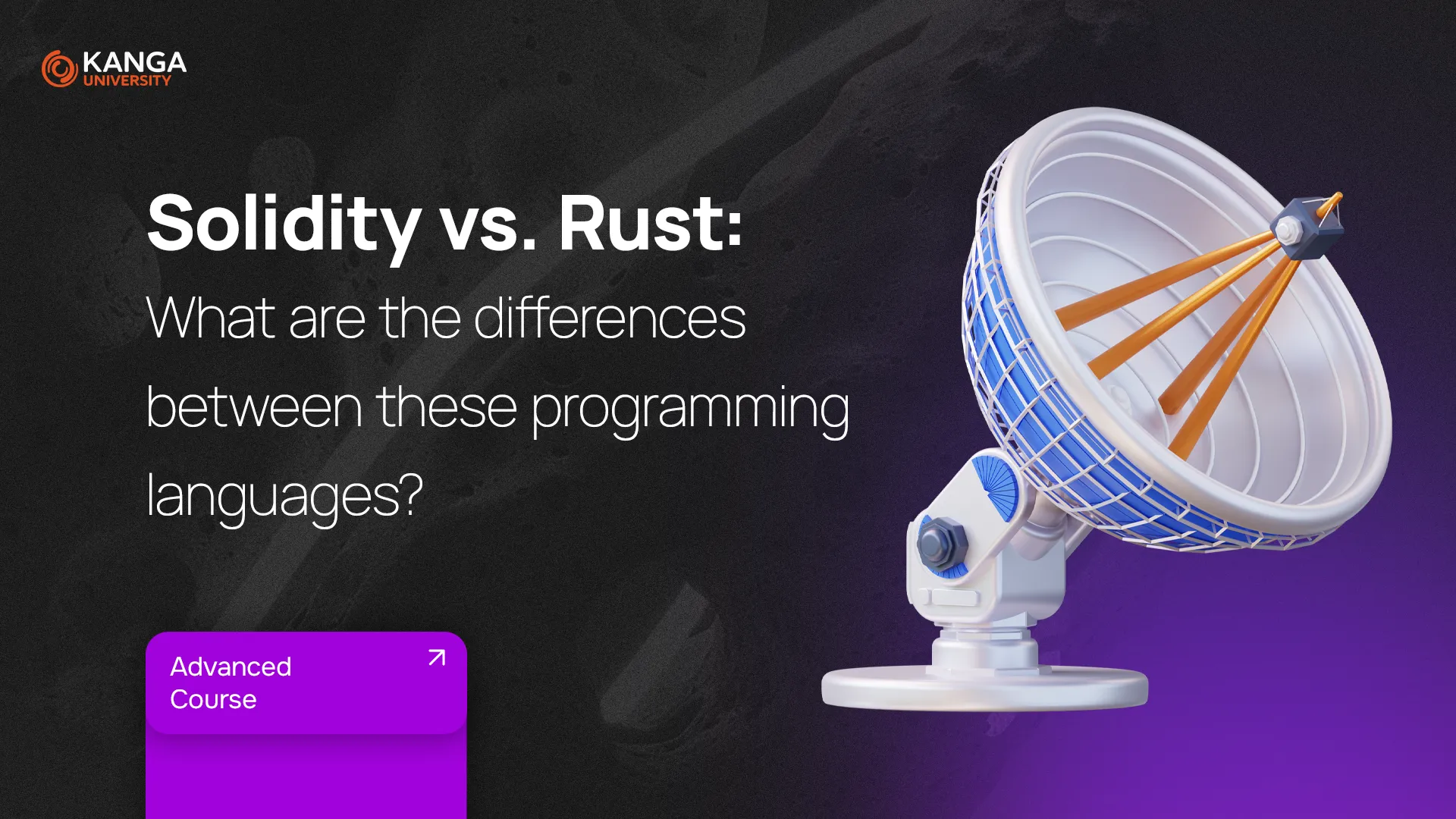
Web3 isn’t just about cryptocurrencies or NFTs. At its core, it’s about building. That means writing code for smart contracts and decentralized applications (dApps). If you want to create in this space, you need to know the tools. The two most important programming languages for blockchain today are Solidity and Rust.
In this lesson, you’ll learn what they are, how they work, and how to decide which one suits your goals.
Solidity: The Language of Ethereum
Solidity is the most widely used language for writing smart contracts. It was created specifically for Ethereum but now runs on many other EVM-compatible blockchains.
Why developers choose Solidity:
-
It’s similar to JavaScript, making it easier to learn.
-
It has a large community and many beginner-friendly tools (like Remix, Hardhat, and Truffle).
-
It’s tailor-made for building tokens, dApps, and DeFi protocols.
Blockchains that support Solidity:
-
Ethereum
-
Polygon
-
Arbitrum
-
Optimism
-
Avalanche (C-Chain)
-
Fuel
-
Celestia (limited compatibility)
-
Polkadot (via EVM parachains)
Rust: Power and Safety
Rust is a general-purpose programming language focused on speed, memory safety, and performance. It wasn’t made for blockchain specifically, but it has quickly become a go-to language for high-performance decentralized applications — especially on Solana.
Why developers choose Rust:
-
It prevents common bugs at compile time, making your code more secure.
-
It performs well under heavy workloads and handles memory without a garbage collector.
-
It supports multiple programming styles, from object-oriented to functional.
Blockchains that support Rust:
-
Solana (main language)
-
Near
-
Sui
-
Aptos (uses Move, based on Rust)
-
Polkadot (partial support)
Side-by-Side Comparison: Solidity vs. Rust
| Feature | Solidity | Rust |
|---|---|---|
| Ease of learning | Easier, beginner-friendly syntax | Steeper learning curve |
| Security | Good, but needs external audits | Built-in memory safety, fewer bugs |
| Performance | Medium, depends on EVM | High, optimized for speed |
| Development tools | Remix, Hardhat, Truffle | Cargo, Anchor, Solana CLI |
| Blockchain ecosystems | Ethereum, Layer 2s, EVM chains | Solana, Near, Sui, Aptos |
| Community and adoption | Very large and active | Rapidly growing |
| Programming paradigms | Object-oriented | Functional, object-oriented, imperative |
Which Language Should You Learn?
If your goal is to build smart contracts on Ethereum or related networks, Solidity is the best starting point. It’s easier to pick up and widely supported across many Web3 platforms.
If you’re aiming to build high-performance applications or want deeper control over how your code runs, Rust is the stronger choice — especially if you’re interested in Solana, Near, or other newer ecosystems focused on scalability and speed.
Key Takeaways
-
Solidity is ideal for quick deployment on Ethereum and its ecosystem.
-
Rust offers performance and security, but requires more effort to learn.
-
Both are Turing-complete languages, capable of powering complex dApps.
-
Knowing both can be a big advantage if you’re planning a long-term career in Web3.